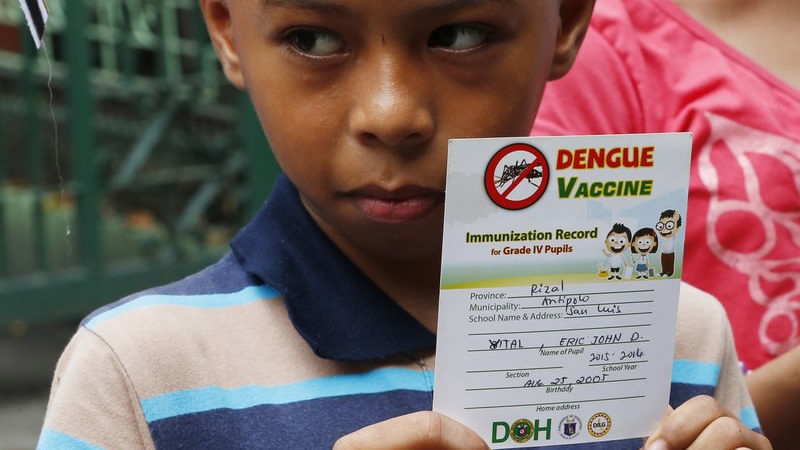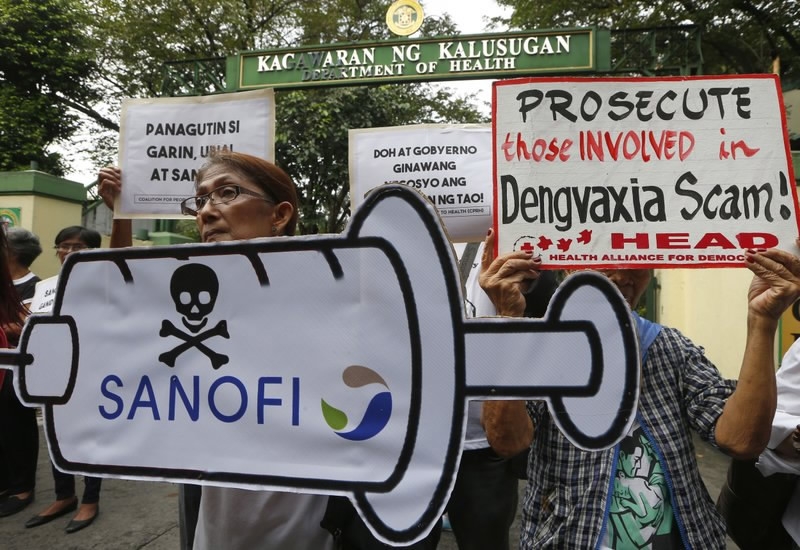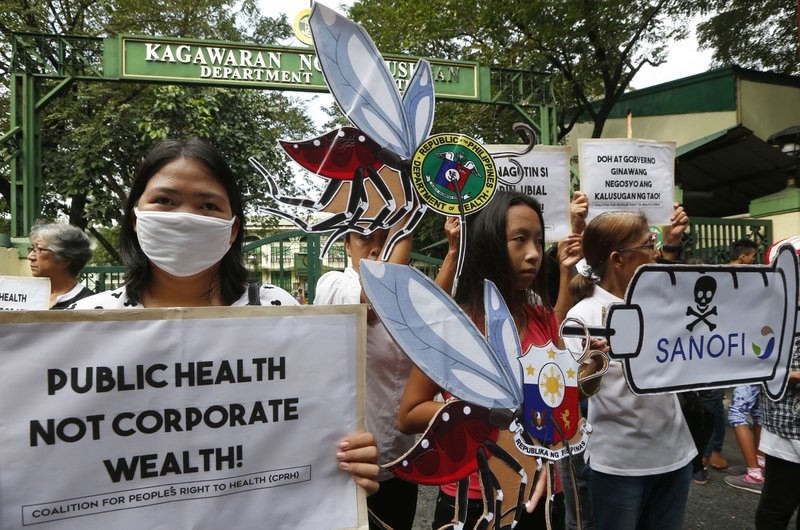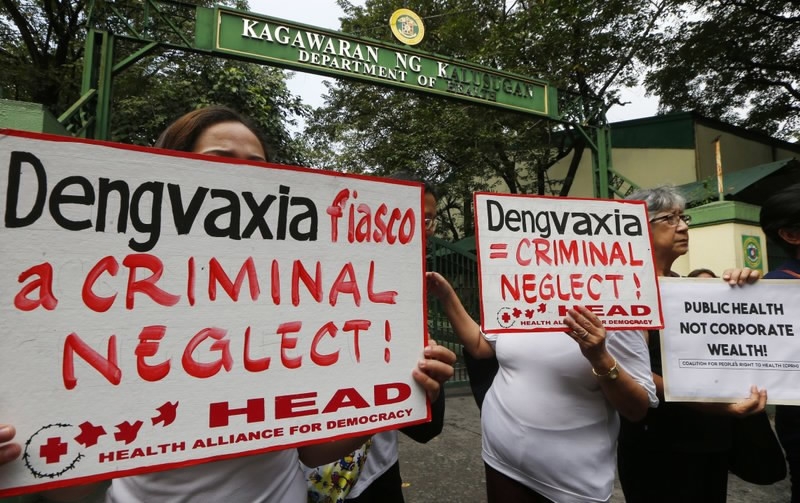
health
18:45, 09-Dec-2017
Philippines wants money back from Sanofi for dengue vaccine

The Philippine government will demand a refund of 3.5 billion pesos (69.5 million US dollars) from vaccine maker Sanofi Pasteur and look at possible legal action after a study showed the vaccine used in a dengue immunization program could expose some people to severe illness, the country's health chief said Friday.
Health Secretary Francisco Duque III said the government will also seek compensation for treatment of children who may develop severe dengue. No deaths have been confirmed, but at least one immunized child has developed dengue.
The Department of Health put on hold its dengue immunization drive, which was launched last year and is the world’s first such public program after France-based Sanofi Pasteur released the study last week.

Protesters display placards during a rally outside the Department of Health as they demand accountability for government officials involved in the controversial immunization of the anti-dengue vaccine Dengvaxia to more than 700,000 Filipino children Friday, December 8, 2017, in Manila, Philippines. /AP Photo
Protesters display placards during a rally outside the Department of Health as they demand accountability for government officials involved in the controversial immunization of the anti-dengue vaccine Dengvaxia to more than 700,000 Filipino children Friday, December 8, 2017, in Manila, Philippines. /AP Photo
A small group of protesters called on the government to take action against the health secretaries who supported the vaccination program under the previous and current administrations in a rally at the Department of Health in Manila. The protesters brought a 12-year-old boy who they said received the dengue vaccine.
Former Health Secretary Janette Garin told ABS-CBN TV that there was no warning given by Sanofi in her time that the dengue vaccine Dengvaxia carried a risk for those who have not been infected. She said she was ready to face a Senate investigation next week.
More than 730,000 public school children aged 9 and above in three Philippine regions with high rates of dengue fever have received at least the first dose of Dengvaxia, the first licensed dengue vaccine.

Protesters outside the Department of Health in Manila, Philippines. /AP Photo
Protesters outside the Department of Health in Manila, Philippines. /AP Photo
Sanofi Pasteur said its long-term follow-up study of the vaccine showed sustained benefits for up to six years for those who had a previous dengue infection, but that people who never had dengue had an increased risk of a severe case and hospitalization from the third year after immunization.
“We will demand the refund of the 3 billion paid for the Dengvaxia and that Sanofi set up an indemnification fund to cover the hospitalization and medical treatment for all children who might have severe dengue,” Duque said at a news conference, adding that a government legal team will also look into Sanofi’s accountability.
The pharmaceutical giant initially claimed that the vaccine was safe and effective for all people aged 9 to 45, but later acknowledged that it “is not recommended for people who have had no prior dengue infection” due to the risk of a severe case, Duque said.
At least one 12-year-old from northern Tarlac province developed dengue after being immunized but recovered, Duque said, although he did not say if Dengvaxia caused the infection.
Another possible dengue case was being investigated, he said.

Protesters show their concerns outside the Department of Health regarding the controversial immunization of the anti-dengue vaccine Dengvaxia on Friday, December 8, 2017, in Manila, Philippines. /AP Photo
Protesters show their concerns outside the Department of Health regarding the controversial immunization of the anti-dengue vaccine Dengvaxia on Friday, December 8, 2017, in Manila, Philippines. /AP Photo
Sanofi Pasteur said Friday it’s working with Philippine authorities to address fears and share new information about the vaccine and will cooperate in an ongoing review of the public vaccination program.
Duque said the Philippines will wait for a recommendation to be released next week by a group of immunization experts who provide advice to the World Health Organization.
WHO says about half the world’s population is at risk of dengue, with a recent estimate indicating 390 million infections per year.
Dengue is a mosquito-borne viral infection found in tropical and subtropical climates worldwide. It is a flu-like disease that can cause joint pain, nausea, vomiting and a rash and can cause breathing problems, hemorrhaging and organ failure in severe cases.
2849km
Source(s): AP

SITEMAP
Copyright © 2018 CGTN. Beijing ICP prepared NO.16065310-3
Copyright © 2018 CGTN. Beijing ICP prepared NO.16065310-3